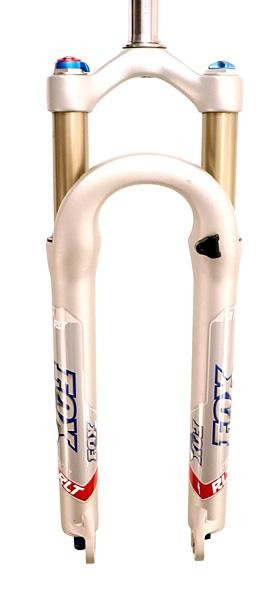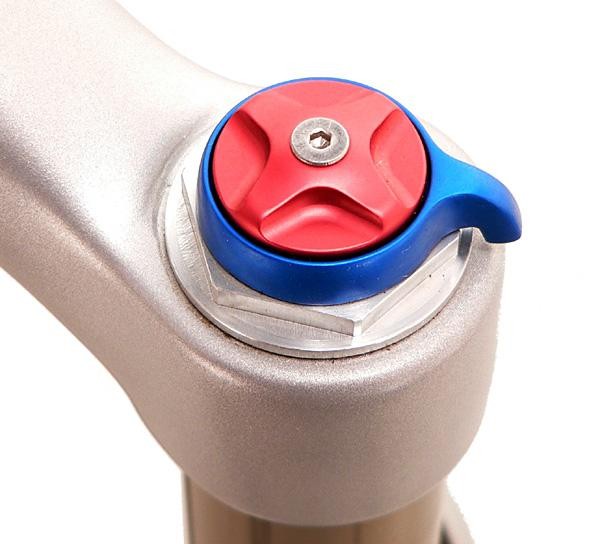Bigger, better, more! Fox F100 RLT on test
Fox's lightest fork in the general trail-riding, four-inch travel category provides smooth,...



Fox's lightest fork in the general trail-riding, four-inch travel category provides smooth, controlled suspension and excellent construction, with a couple of minor niggles, says James Huang.
In many ways, Fox Racing Shox revolutionized the mountain bike front suspension market in the early 00's much in the same way Marzocchi did with its groundbreaking Bomber lineup in the late 90's. At their introduction, the then-massive 32mm stanchions and huge arch of Fox' ultra-stiff chassis raised the bar on its contemporaries, and the CNC machined aluminum internals projected a then-unmatched image of quality and durability on which Fox has largely made good. More importantly, Fox was able to draw on its extensive motorsports suspension experience to engineer suspension characteristics that actually felt good and worked even better.
The mountain bike market seems to have settled on four inches of travel as a sweet spot and there's an awful lot of choice in that arena these days. The F100 RLT is Fox's lightest 100mm travel fork and is aimed at the endurance or marathon racer or just for general purpose trail use. It uses the same basic 32mm chassis architecture as the original lineup but with more extensive machining on the magnesium lower legs to reduce the weight a bit.
You get what you pay for
The F100 RLT isn't exactly a bargain fork at US$650, but there's a lot of performance packed into its understated grey wrapper. 100mm of travel is supplied by a large, relatively low-pressure air chamber in the left leg that is backed with a long negative coil spring to provide a supple initial stroke. The right leg houses an intricate damper cartridge that comes equipped with externally adjustable rebound damping, low-speed compression damping with manual lockout, and an adjustable blow-off threshold to set how big of a hit will get the fork to move when you've got it locked out (or when you're heading downhill and realize a bit too late that you've forgotten to turn the fork back on! Not like I've ever done that or anything…). The RLT is not equipped with any sort of anti-bob 'platform' damping, but it isn't meant to be, either. Fox reserves platform features to its top-of-the-line FX series of forks which come equipped with its unique Terralogic auto-lockout feature.
As has been the case since day one, Fox is quite proud of the small army of CNC-milled parts in its forks and it's easy to see why. Precision machined knobs, caps, and fittings are everywhere you look on the outside of the fork, and the theme carries over to the internals which are noticeably devoid of plastic. Hopefully Fox's CNC mills receive a lot of love since they clearly get used a lot.
Our disc-only test fork with a full-length aluminum steerer tube weighed in at 1610 g (3.53 lbs). That's not a groundbreaking figure or anything, but it's damn respectable and certainly on the low end of the spectrum for comparable forks. It's possible to go a little lighter, but you could easily do much worse in the mass department.
Get The Leadout Newsletter
The latest race content, interviews, features, reviews and expert buying guides, direct to your inbox!
Read James Huang's entire Fox Float RLT review here.